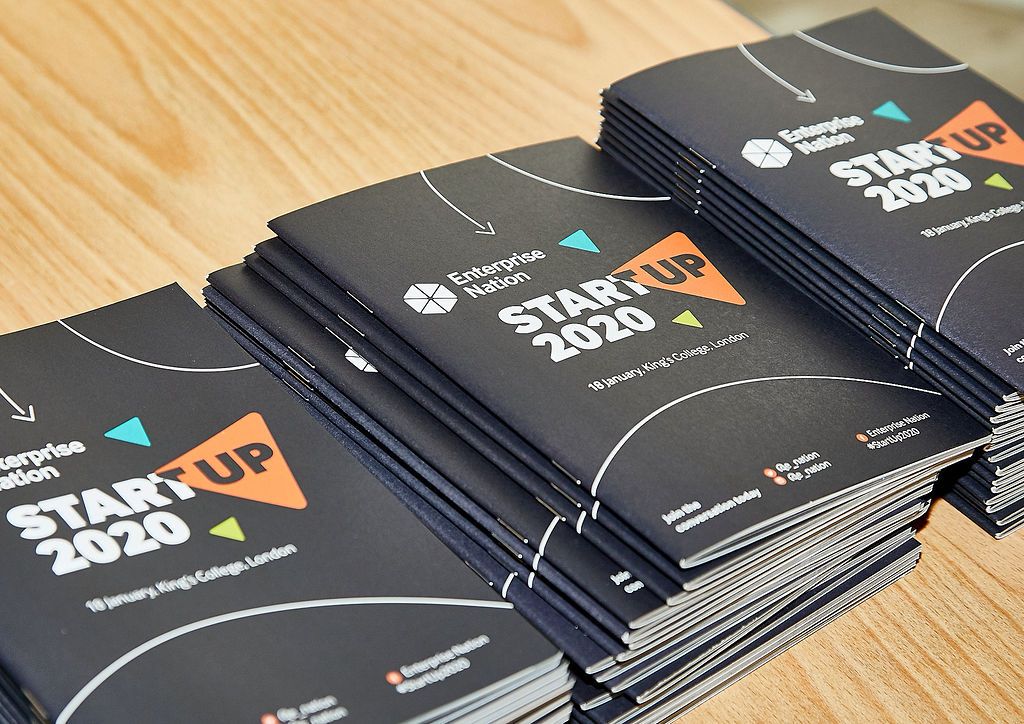Steps to Success for Business Start-ups and Innovation in 2020
GRANTfinder recently joined thousands of delegates at Enterprise Nation’s Startups 2020 Show at King’s College, London. Across a range of seminars, experts addressed audiences of new entrepreneurs and fledgling small business owners. The day showcased the best avenues of support for commercial success and provided networking opportunities for like-minded people.
Start Up Loans – Richard Bearman, managing director
Supporting businesses that struggle to access other forms of finance, the Start Up Loans company provides personal loans for business purposes, helping entrepreneurs to start and grow. Designed for those at the inception stage, through to businesses operating for up to two years, the initiative offers fee-free loans from £500 to £25,000, coupled with 12 months’ intensive support and mentoring.
Richard’s ambition for Start Up Loans is to help 10,000 new businesses in 2020, with a distinct focus on areas of the country that don’t traditionally have good access to business finance.
When preparing an application, Richard told us the most important consideration is demonstrating the energy and commitment to work with the provider. The first step is to create a robust business plan, detailing how a cash-flow can be generated to meet the loan repayments. If this can be clearly shown, Richard says there’s a good chance of success.
Mentoring over money
Funding may be key to launching a business to market, but Richard believes the supplementary support from Start Up Loans is actually more important than the money itself. When he talks to successful applicants, they frequently tell him their biggest passion is being partnered with someone who has the time and expertise to talk through their business idea. The process helps to shape something that’s fundable in the first place and profitable in the longer term.
Through a network of delivery partners, Start Up Loans’ mentors offer bespoke support as they walk applicants through the credit process towards loan approval. Alongside generic partners at a national level, some are specific to applicant groups, eg the Prince’s Trust for young entrepreneurs and X-Forces for those who have recently left the services. Advisors spend time talking to applicants about their business plan, discussing how the company might operate, determining if funding is right for the business and helping them become ‘credit ready’.
From the experience applicants gain through Start Up Loans mentoring, Richard is convinced that businesses are better placed to work through subsequent applications when seeking further funding from mainstream operators.
Innovate UK – Nigel Walker, head of innovation lending
The UK’s innovation agency, Innovate UK (IUK) stimulates business-led innovation and drives economic growth through the provision of grants, loans and knowledge transfer partnerships.
IUK funds individual companies or consortia, where businesses, universities and other research organisations come together. Funds are intended to accelerate research and development (R&D) among businesses undertaking research intensive, technology-led, IP-rich projects. Large and small companies often work together around disruptive technologies, from photonics, through to biotechnology, AI and digital innovations.
IUK’s Innovation Loans are aimed at later stage R&D, where there’s a clear route to commercial success and the business is suitable to take on a loan that can accelerate its scale-up and growth. Nigel encourages applicants to demonstrate good quality innovation projects, backed up by a business plan and detailed assumptions around the proposed market.
Strategy for success
Nigel endorses a three-step approach to creating a funding strategy:
1. The technology development strategy
What are you taking to market?
What is the challenge?
Can you deliver?
2. The commercial strategy
Is there a market?
What is the ‘customer pull’ around the challenge?
Can you manage the risk?
3. The funding strategy
How are can you achieve the financial resources you need to deliver your product or service to the customer base?
Is there a clear need for public sector funding?
Applications are scored by independent technical and commercial assessors. These include academics who specialise in technology and businesspeople who understand market opportunities. Those scoring around 70% denote a viable project.
With such strong competition, Nigel emphasised the need for businesses to propose compelling innovations, particularly for IUK’s open programmes like ‘Smart Grants’, which funds game-changing and disruptive R&D. Smart Grants applications have a success rate of around 10%, compared to 20% for Innovation Loans.
In summing up, Nigel shared his top tips for business considering applying to IUK:
Read the application guidance
Define your eligible project costs.
Articulate a well-evidenced, persuasive story.
Avoid jargon.
Answer all the questions.
There is a fixed closing date – don’t be late!
Read the Knowledge Transfer Network’s Good Application Guide which give tips and techniques on how to answer IUK’s standard application questions.
In delivering these workshops, both Richard and Nigel provided a rare opportunity for fund seekers to glean valuable insights from a funder’s perspective. The message clear – preparation is key. Demonstrating the quality of your business proposal, the market opportunity and ability to deliver will help you stand out from the crowd when assessors start scoring.
GRANTfinder has created a Funding Toolkit which provides guidance on the 7 key steps to funding success. This includes information on identifying funding, working with partners, and tips on how to write a successful application.
To find out more about how GRANTfinder can keep you in the know, and subscription fees, contact us today.






